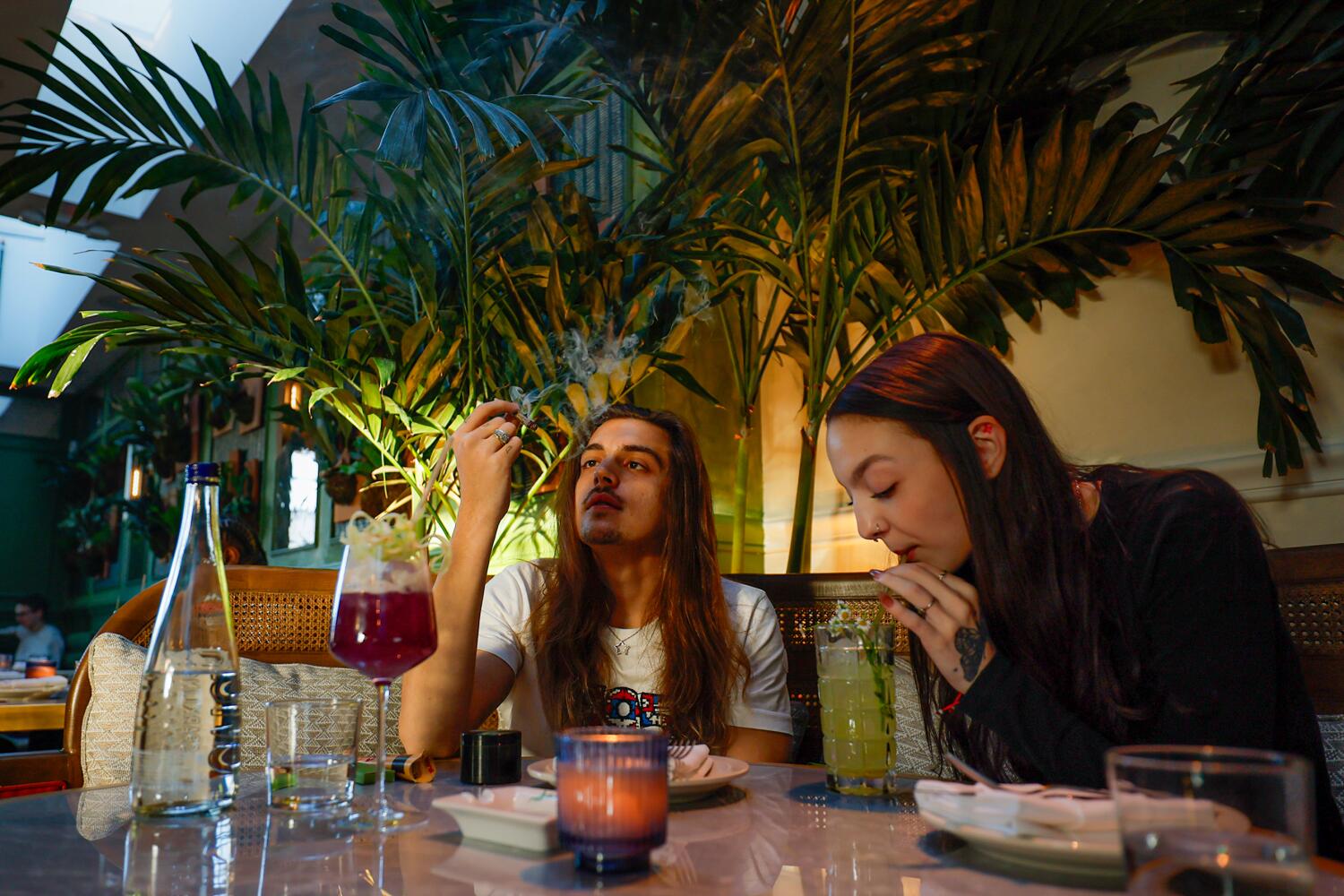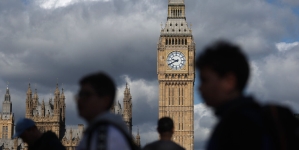-
California Assembly passes bill allowing cannabis cafes - May 21, 2024
-
A portion of Mulholland Drive, damaged by mudslides in winter storms, reopens - May 26, 2024
-
‘Maybe You Don’t Want to Win’ - May 26, 2024
-
Donald Trump Putting Law Enforcement in Danger: Attorney - May 26, 2024
-
Avoid the waters of these 5 L.A. County beaches this holiday weekend, public health officials say - May 26, 2024
-
Bawdy Comedy ‘Anora’ Wins Palme d’Or at Cannes Film Festival - May 26, 2024
-
Map Shows Heat Wave Zone Spread Into Five New States - May 26, 2024
-
Azusa police arrest suspected slingshot-wielding vandal - May 25, 2024
-
Donald Trump Hammers Judge Ahead of Jury Instructions - May 25, 2024
-
Sometimes U.S. and U.K. Politics Seem in Lock Step. Not This Year. - May 25, 2024
California Assembly passes bill allowing cannabis cafes
A bill that would allow Amsterdam-style cannabis cafes in California passed the state Assembly Monday afternoon on a 49-4 vote and is headed to the Senate. But even if the Legislature’s upper chamber approves AB 1775, legalization remains far from a sure thing.
Gov. Gavin Newsom vetoed a prior iteration of the bill in October, citing the state’s long-standing smoke-free workplace protections.
The bill would authorize local jurisdictions to allow licensed cannabis retailers to prepare and sell non-cannabis food and nonalcoholic beverages. The bill would also allow the cafes to host live music and other performances.
Under current state law, consumers can consume cannabis at a dispensary, but dispensaries can’t legally sell non-cannabis products like coffee and food, as is legal in Amsterdam.
California’s symbolic position at the apex of weed culture has long been rivaled by the Dutch capital, where cannabis cafes have been legal since the 1970s.
Assemblymember Matt Haney (D-San Francisco), who introduced the legislation, has framed it as a matter of fairness. He argues that the cafes would level the playing field for the state’s highly taxed and regulated legal weed industry, allowing legitimate businesses to compete with black-market sellers who don’t operate under the same constraints.
“This is a bill that supports our legal small businesses that just want to diversify their businesses and do the right thing,” Haney said Monday on the Assembly floor. “The illicit illegal market is continuing to grow and thrive, while our legal cannabis market is struggling.”
Haney cited the governor’s prior veto, saying he had been working to address Newsom’s concerns through amendments to the bill. The new version would prohibit cannabis smoking or vaping in “back of house” of lounges, where food is being prepared or stored, creating separation between where people are consuming cannabis and other work areas.
Rather than taking a blunt statewide approach, the bill would put the decision to allow cannabis cafes in the hands of local jurisdictions. Should a jurisdiction decide to greenlight the lounges, it would have to hash out its own permitting process and regulations.
West Hollywood put a licensing system in place several years ago, and a handful of cannabis lounges operate within the city’s 1.89 square miles. The West Hollywood businesses operate with workarounds that separate the food businesses, The Times has previously reported.
No such licensing system exists in the city of Los Angeles.
The American Cancer Society Cancer Action Network, the American Heart Assn. and the American Lung Assn. have all opposed the bill, raising concerns about the health effects of secondhand marijuana smoke. They argue that the bill would undo hard-fought workplace protections “by re-creating the harmful work environments of the past.”
Marijuana advocacy group Americans for Safe Access has argued that patrons and employees would face no health risks because of the highly regulated nature of such establishments.
A Newsom spokesperson declined to comment on pending legislation.
Staff writer Nathan Solis contributed to this report.
Source link

































